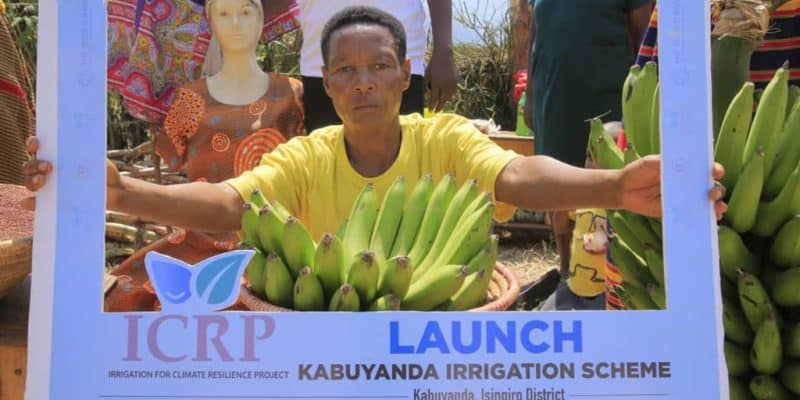In the municipality of Kabuyanda, located in the Isingiro district of Uganda, more than 108,000 farmers will be supplied with water over the next six years. This is the aim of a new climate-resilient irrigation project launched in the Ugandan municipality on 2 August 2023.
In Uganda, the implementation phase of the Kabuyanda climate-resilient irrigation project has been launched. The announcement was made by the Minister of State for Water at the Ministry of Water and the Environment, Aisha Sekindi, who presided over the project start-up ceremony, in the presence of the Minister of State for Animal Industry at the Ministry of Agriculture, Animal Industry and Fisheries, Bright Rwamirama. The project aims to improve the climate resilience of more than 108,000 farmers by installing modern, water-efficient irrigation systems.
The systems will benefit farmers in Kabuyanda sub-county, Kabuyanda town council in Isingiro West and Kikagate sub-county in Isingiro South. According to the Ugandan Ministry of Water and the Environment, the irrigation systems will be supplied by a new dam built on the Mishumba river, in the Isingiro district. The structure, which is expected to be 33 m high and have a maximum crest length of 314 m, will be capable of storing 8.8 million m3 of water.
Financing from the World Bank
The dam will be located in the Rwoho Central Forest Reserve, a protected area south of the Bugamba Central Forest Reserve, in the Rwampara and Isingiro districts of south-western Uganda. To mitigate the impact, the project also involves restoring and reforesting an area of 500 hectares, five times larger than the 100 hectares that will be flooded, using indigenous species, according to the Ugandan authorities.
Read Also – UGANDA: 160 farmers to be provided with irrigation systems in Kapelebyong
The Ugandan government will set up piped irrigation systems to cover 3,300 hectares of arable land over the next six years, thanks to this new project. This will help to improve people’s livelihoods, thereby reducing food insecurity. In the areas targeted by the irrigation project, people are dependent on rain-fed agriculture, which limits their ability to ensure food security and sustainable livelihoods.
The Ugandan government will finance the work, worth $190.1 million, with the support of the World Bank, which will contribute $169.2 million, and local beneficiaries, who will contribute $18.5 million.
Inès Magoum







